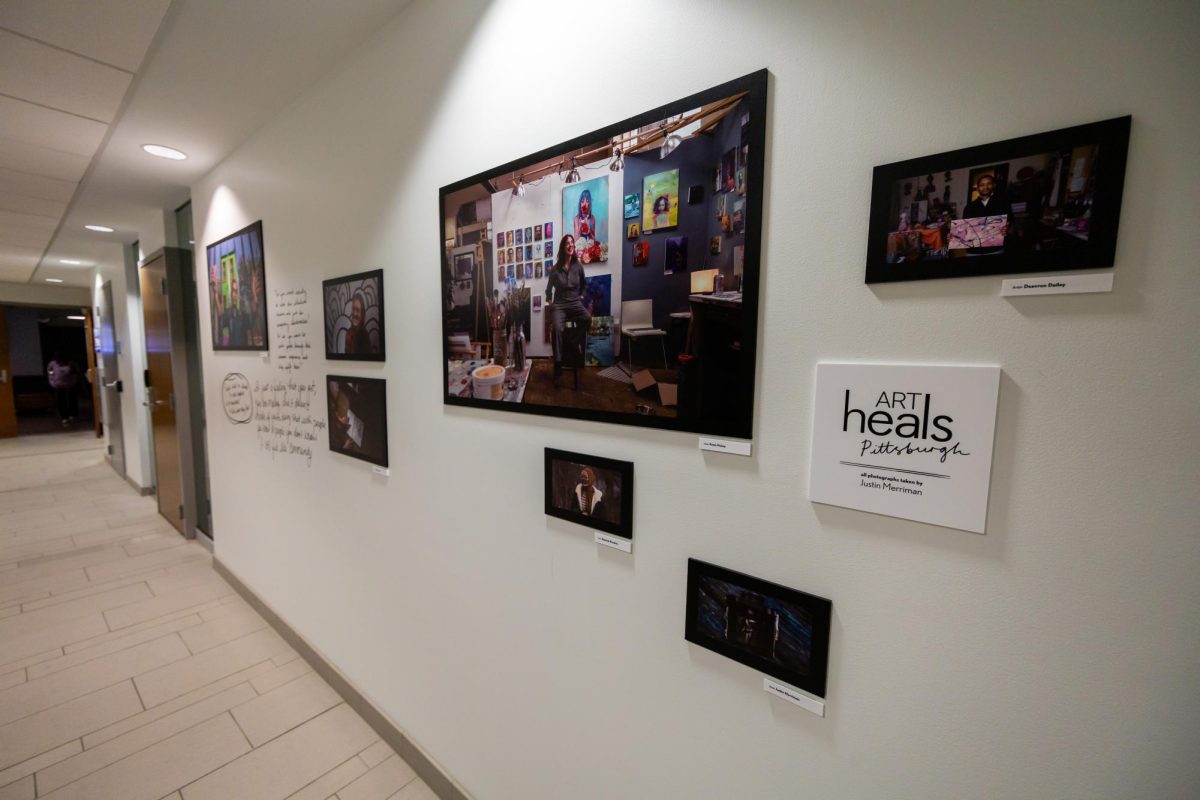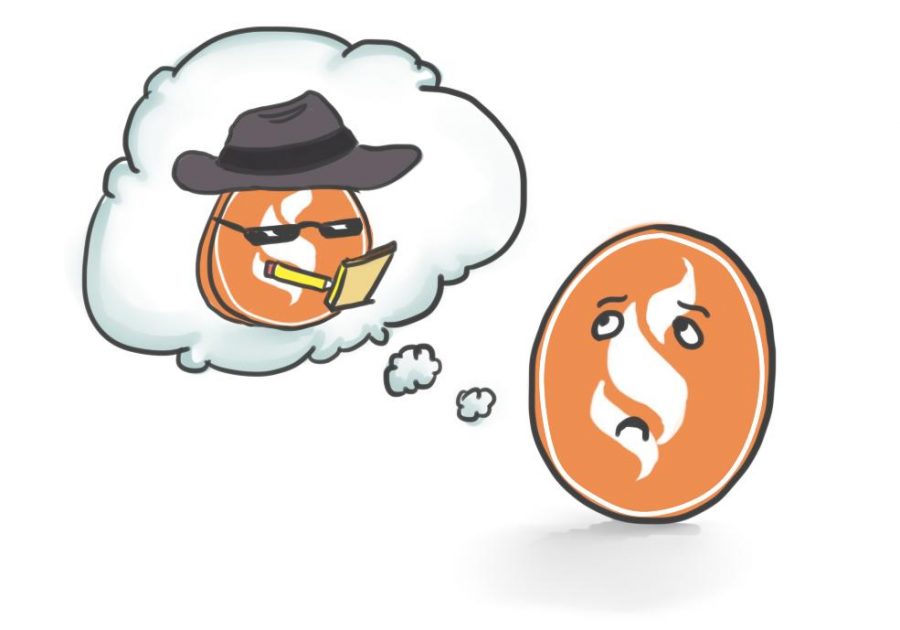When you see a popular article online titled “Why Girls Love the Dad Bod,” you have to read it. Or do you?
This is the headline on the most shared article from the Odyssey Online, an online blog-style platform where about 14,000 college-aged writers publish stories and get paid based on the number of shares they get on social media, with the aim of bringing campus-related news to all corners of the internet. Contrary to its mission of “facilitating deeper conversation,” the site seems to contribute more to the already over-saturated realm of GIFs, listicles and open letters than to actual intellectual or newsworthy subjects.
In the age of internet media, the Odyssey is a less veritable version of Buzzfeed in a sea of wannabe “news” sites including The Tab, The Black Sheep and Her Campus. The company markets itself as “a social media platform committed to democratizing content creation while personalizing discovery.”
But “articles” like “Sorry I’m a Size 00” make the Odyssey one step above posting unsolicited rants on Facebook. And somehow the guise of a professional platform makes the post even more embarrassing than a Facebook rant.
As the world of journalism continues to transform, media outlets have struggled to find a balance between maintaining substantial journalism and monetizing their platforms through advertisements and subscriptions. Unfortunately, some outlets have never done the former and have only done the latter while continuing to pretend to be an outlet for news and accurate, substantive information. Buzzfeed, for instance, has tried to change its clickbait-centric image by putting together a team of renowned journalists to tackle hard-hitting issues. But websites such as the Odyssey — with more than 30 million monthly visitors, according to the website — only popularize the trend of blog-style entertainment news that adds little to the industry’s integrity.
Although its homepage promotes articles with titles such as “5 Things I Don’t Tell My Mom Often Enough” and “15 Things You Realize As Your Baby Brother Grows Up,” the Odyssey fancies itself a revolutionary local news source. The media company’s website says it was “founded to…elevate engagement, by magnifying broader perspectives and facilitating deeper conversations in and about the world.”
But the only deep conversations that actually make their way to the surface of social media are usually fluff pieces on relationships and open letters to oddly vague stereotypes like, “The Girl with the Open Heart.” No reporting, no research, just shameless clickbaiting.
If a reader turns to the Odyssey looking for real community news, they’ll most likely only find aggregated briefs and first-person narratives, like an account of the explosion in Manhattan Saturday night that aggregates three separate New York Times articles and only lists them under a “sources” subhead at the end of the article.
The abundant amount of information on the internet already makes it difficult to identify accurate news from fluff, and websites like the Odyssey needlessly fuel this problem for the sake of profit.
Unlike other blogging and constant-content sites like Medium, the Odyssey does have a substantial editing process that includes community editor in chiefs and professional editors based in New York City. But the site’s mission — to drive social media traffic and push for “trending articles” — lacks credibility. The site does a disservice to readers by focusing its mission on “content” rather than quality journalism.
According to the editorial handbook, “each article should be shared on three or more platforms multiple times a week.” If you’re a college student with any kind of social media account, you probably see at least one link to an Odyssey article every other day, especially if you’re Facebook friends with creators, who are required to promote their writing as much as possible.
While traditional news outlets would love for social media numbers like that, they recognize articles that hold senators and CEOs accountable for their actions aren’t as flashy and shareable as “As much as it may hurt, I’m not afraid of terrorists.”
Whenever I read an article by the Odyssey, the site seems more concerned with traffic than quality, and likely to publish almost anything that could garner shares. Given a staff of roughly 70 full-time, paid editors and a weekly production of 10,000 articles, according to the website, each editor is faced with a mountain of content to correct. In a listicle titled “14 Things Every Odyssey Editor Knows to be True,” an Odyssey editor describes what it’s like when she has “30 articles to edit AND [she] still [hasn’t] written [her] own.” Rather than describing the excitement she might feel at seeing one of her stories make a difference or receive an award, she describes the high Odyssey editors feel when one of their writers’ articles is trending on social media, writing “[The editor] can celebrate too because [he or she] had a hand in one of the top articles on the entire site!”
Creators are paid conditionally based on how many shares their articles receive, a model that seems to push for more clickbait than serious content. If creators don’t receive a certain amount of shares or page views, they don’t get paid, but a story that gets more than 1 million page views per month can rake in up to $1,000, according to guidelines from the Odyssey’s pilot reward program.
With over 1,200 “communities” — local chapters with specific editors and writers — the Odyssey claims to focus on local conversations which can be connected to trends and issues throughout the world.
In an interview with The Business Times, Odyssey CEO B. Evan Burns said creators are just required to have a “unique perspective.” Therein lies the problem. Just because someone wants to write, doesn’t mean he or she has the chops to do it.
According to the handbook, the creators are “the voices of the millennial generation … today’s leaders, visionaries, innovators and thought-provokers.” Apparently today’s visionaries are pondering important subjects like the “10 Qualities That Make Lip Gallagher Absolutely Irresistible.”
If that’s the case, then our generation needs to rethink what we’re imparting on the world.
To Burns’ credit, the Odyssey is managing to succeed where so many other startups have failed. The site claims to have funding of $32 million. Since its launch out of beta in 2014, the amount of creators, communities and article shares has climbed monumentally.
While it’s all well and fine to talk about your feelings — this column is doing exactly that — doing so via the Odyssey discredits the piece entirely. An Odyssey creator would achieve just as much recounting the information that might go into a listicle to a friend.
The Odyssey is representative of the downfall of online journalism, and we shouldn’t buy into it. It’s great that more voices are contributing to the online world, but we need to be sure that these voices are checked, verified and adding value to the media.
And if you’re an Odyssey creator, try channeling your creative urges to a more reputable news site — your readers, and your resumé, will thank you.
Emily primarily writes on culture and education for The Pitt News.
Write to her at [email protected].



